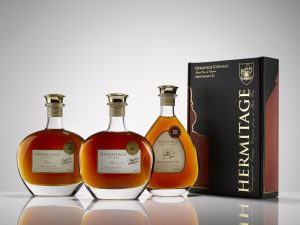 XO brandy, XO cognac. XO armagnac. Why is the term XO used so often when few of us actually know what it means? Originally, XO stood for Extra Old. In terms of age, up until 2018, an XO cognac had to be at least 6 years old but this was also the required minimum age of Napoleon Cognac. So, after decades of promising change, the controlling body of cognac, the BNIC, agreed to make the minimum barrel age of an XO cognac 10 years old. This is important because cognacs do not mature once they have been taken from their oak casks and placed in glass. Armagnac also stepped into line and now age their XO brandies for a minimum of ten years.
XO brandy, XO cognac. XO armagnac. Why is the term XO used so often when few of us actually know what it means? Originally, XO stood for Extra Old. In terms of age, up until 2018, an XO cognac had to be at least 6 years old but this was also the required minimum age of Napoleon Cognac. So, after decades of promising change, the controlling body of cognac, the BNIC, agreed to make the minimum barrel age of an XO cognac 10 years old. This is important because cognacs do not mature once they have been taken from their oak casks and placed in glass. Armagnac also stepped into line and now age their XO brandies for a minimum of ten years.
The problem with all this is that brandies, particularly cognacs, need to be in a barrel for much longer than ten years to reach optimum maturity, so an XO brandy is actually not very old. It should be noted that some of the smaller brandy houses keep their XO cognacs in the barrel for longer than the required minimum age in order to produce a more mellow, flavoursome product. More recently it has been recognised that a 10 year old cognac is not particularly old so another generic age statement has been introduced, it is called XXO. The minimum age for an XXO cognac (Extra Extra Old) is 14 years in an oak cask. Even this is not long enough for cognacs from the premier cru, Grande Champagne. They are the slowest of all brandies to mature and may take up to twice as long as cognacs from other crus, requiring 50 years or even more.
The term XO is widely misunderstood and even at ten years old some brandies are only just drinkable. At Hermitage Cognacs, we do not sell generic XO brandies. We prefer to offer an age statement on each one to help customers understand how long their brandy has matured in the cask.
 We have lots of bargains running during November which will hopefully ease the pain of another Lock Down a little. We are having our usual Black Friday Weekend Sale from 27 – 30 November inclusive. Look out for some irresistible bargains to boost your drinks cabinet this Christmas. Remember to check the website early as stocks will be limited.
We have lots of bargains running during November which will hopefully ease the pain of another Lock Down a little. We are having our usual Black Friday Weekend Sale from 27 – 30 November inclusive. Look out for some irresistible bargains to boost your drinks cabinet this Christmas. Remember to check the website early as stocks will be limited.
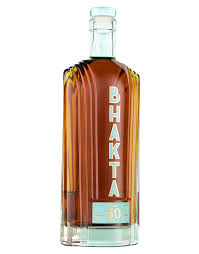 Last time we reported that Whistle Pig founder, Raj Bhakta, had bought the armagnac house Maison Ryst Dupeyron. One wonders if he intends to do for
Last time we reported that Whistle Pig founder, Raj Bhakta, had bought the armagnac house Maison Ryst Dupeyron. One wonders if he intends to do for 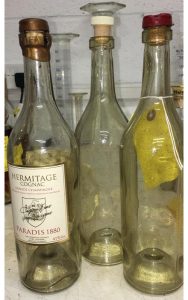 We have often reported how the drinks industry is changing its production methods to become more environmentally friendly but now the products themselves are under the spotlight. A European group, the Circular Economy Platform for Glass Collection & Recycling, is aiming to have 90% of all EU glass packaging recycled by 2030; the figure currently stands at 76%. A consumer survey found that 80% of Europeans still prefer buying wine and
We have often reported how the drinks industry is changing its production methods to become more environmentally friendly but now the products themselves are under the spotlight. A European group, the Circular Economy Platform for Glass Collection & Recycling, is aiming to have 90% of all EU glass packaging recycled by 2030; the figure currently stands at 76%. A consumer survey found that 80% of Europeans still prefer buying wine and  XO brandy, XO cognac. XO armagnac. Why is the term XO used so often when few of us actually know what it means? Originally, XO stood for Extra Old. In terms of age, up until 2018, an XO cognac had to be at least 6 years old but this was also the required minimum age of Napoleon Cognac. So, after decades of promising change, the controlling body of cognac, the BNIC, agreed to make the minimum barrel age of an XO cognac 10 years old. This is important because cognacs do not mature once they have been taken from their oak casks and placed in glass. Armagnac also stepped into line and now age their XO brandies for a minimum of ten years.
XO brandy, XO cognac. XO armagnac. Why is the term XO used so often when few of us actually know what it means? Originally, XO stood for Extra Old. In terms of age, up until 2018, an XO cognac had to be at least 6 years old but this was also the required minimum age of Napoleon Cognac. So, after decades of promising change, the controlling body of cognac, the BNIC, agreed to make the minimum barrel age of an XO cognac 10 years old. This is important because cognacs do not mature once they have been taken from their oak casks and placed in glass. Armagnac also stepped into line and now age their XO brandies for a minimum of ten years.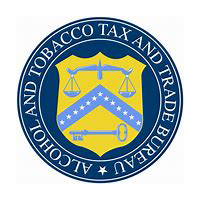 Six months ago, the US imposed hefty tariffs on the import of some European wines, whiskies and liqueurs following a long running dispute over EU import tariffs and subsidies. Last December, the US government considered imposing similar US tariffs on other EU wines and spirits, including
Six months ago, the US imposed hefty tariffs on the import of some European wines, whiskies and liqueurs following a long running dispute over EU import tariffs and subsidies. Last December, the US government considered imposing similar US tariffs on other EU wines and spirits, including 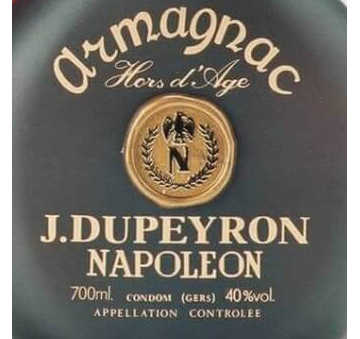 We are used to seeing the ownership of French brandy houses moving to the Far East but recently, US controlled brandies are coming to the fore. US drinks group Sazerac has released a cognac named after Bernard Sazerac de Forge who founded his cognac house in 1782. Called
We are used to seeing the ownership of French brandy houses moving to the Far East but recently, US controlled brandies are coming to the fore. US drinks group Sazerac has released a cognac named after Bernard Sazerac de Forge who founded his cognac house in 1782. Called  There cannot be a soul who has not been affected by the current coronavirus pandemic but the On Trade has been hit particularly hard. With pubs and restaurants closed worldwide their future is uncertain. A bitter blow, especially as the ONS recently reported that the number of pubs and bars operating in the UK rose last year for the first time in a decade. Here in the UK staff have been furloughed and emergency legislation has given all commercial properties a 3 month rent reprieve. In other attempts to keep the industry afloat, the WTSA called for the collection of alcohol duty to be suspended for 6 months and denounced the timing of the Scottish government’s move to introduce a bottle deposit return scheme. UK duty did not get suspended, but the government did add off-licences to the list of businesses deemed “essential” during the lockdown. One trader in Maryland is trying to keep service going by using its pet boxer dog to deliver orders to the public in the carpark. This follows the WHO advice that pets cannot carry the virus. We have certainly seen some ingenious ways to keep businesses running recently. We are all grateful to the many
There cannot be a soul who has not been affected by the current coronavirus pandemic but the On Trade has been hit particularly hard. With pubs and restaurants closed worldwide their future is uncertain. A bitter blow, especially as the ONS recently reported that the number of pubs and bars operating in the UK rose last year for the first time in a decade. Here in the UK staff have been furloughed and emergency legislation has given all commercial properties a 3 month rent reprieve. In other attempts to keep the industry afloat, the WTSA called for the collection of alcohol duty to be suspended for 6 months and denounced the timing of the Scottish government’s move to introduce a bottle deposit return scheme. UK duty did not get suspended, but the government did add off-licences to the list of businesses deemed “essential” during the lockdown. One trader in Maryland is trying to keep service going by using its pet boxer dog to deliver orders to the public in the carpark. This follows the WHO advice that pets cannot carry the virus. We have certainly seen some ingenious ways to keep businesses running recently. We are all grateful to the many 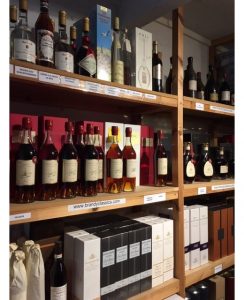 We are open for business as usual so you can send a special gift or birthday present to a loved one you cannot visit or treat yourself during this particularly difficult time at home. We have wonderful French
We are open for business as usual so you can send a special gift or birthday present to a loved one you cannot visit or treat yourself during this particularly difficult time at home. We have wonderful French 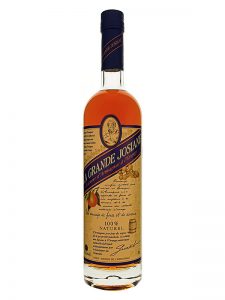 The Wine Enthusiast Top 100 International Spirits 2019 has listed
The Wine Enthusiast Top 100 International Spirits 2019 has listed 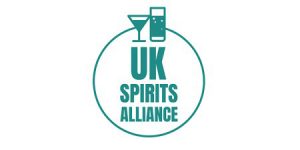 An international group has been formed to tackle issues experienced in the complex and changeable spirits industry. Brexit, trade wars, counterfeiting and debilitating taxes are just a few of the problems that the World Spirits Alliance (WSA) is looking to address. Comprising spirits companies and trade groups the WSA will represent the industry in front of international organisations such as the World Trade Organization, the World Health Organization and the United Nations. Just last month the UK launched its own Spirits Alliance with the aim of “protecting and nurturing the growth of UK spirits”. Its immediate campaign is to stop any further increase of duty on UK spirits. Currently the government states that spirits duty will go up by the retail price index (RPI) in this year’s Budget. This is extremely disappointing as 65% of the nation’s distillers have reported increased sales of spirits since chancellor Philip Hammond froze spirits duty in the 2018 Autumn Budget. Spirit duty rates in the UK have increased from £21.35 per litre of pure alcohol in 2008 to £28.74 in 2019, the fourth highest rate in Europe and one of the highest rates in the world. The price of a bottle of cognac sold at 40%abv, such as
An international group has been formed to tackle issues experienced in the complex and changeable spirits industry. Brexit, trade wars, counterfeiting and debilitating taxes are just a few of the problems that the World Spirits Alliance (WSA) is looking to address. Comprising spirits companies and trade groups the WSA will represent the industry in front of international organisations such as the World Trade Organization, the World Health Organization and the United Nations. Just last month the UK launched its own Spirits Alliance with the aim of “protecting and nurturing the growth of UK spirits”. Its immediate campaign is to stop any further increase of duty on UK spirits. Currently the government states that spirits duty will go up by the retail price index (RPI) in this year’s Budget. This is extremely disappointing as 65% of the nation’s distillers have reported increased sales of spirits since chancellor Philip Hammond froze spirits duty in the 2018 Autumn Budget. Spirit duty rates in the UK have increased from £21.35 per litre of pure alcohol in 2008 to £28.74 in 2019, the fourth highest rate in Europe and one of the highest rates in the world. The price of a bottle of cognac sold at 40%abv, such as